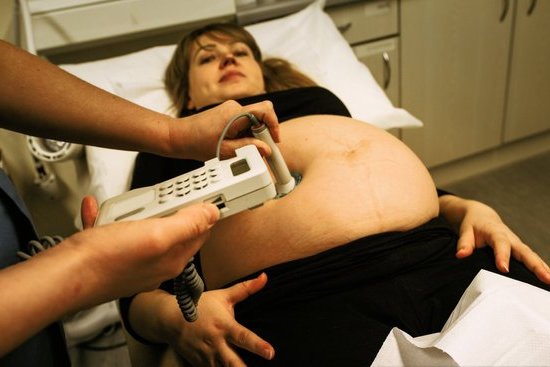Are you wondering how long to hold urine for a pregnancy test? Understanding the importance of this factor is essential to ensure accurate results. In this article, we will delve into the details of pregnancy tests, how they work, factors that can affect their accuracy, and of course, the significance of holding urine for a pregnancy test.
Pregnancy tests are an important aspect of family planning and reproductive health. They help individuals determine whether they are pregnant or not, providing crucial information for making decisions about their future. But in order to obtain reliable results from these tests, it is important to understand how they work and the factors that can impact their accuracy.
In addition to understanding how pregnancy tests work and the factors that can affect their reliability, it is essential to know the recommended time frame for holding urine when taking a pregnancy test. This can have a significant impact on the accuracy of the results. So, let’s dive into the details of holding urine for a pregnancy test and why it matters.
How Do Pregnancy Tests Work?
Pregnancy tests work by detecting the presence of a hormone called human chorionic gonadotropin (hCG) in a woman’s urine or blood. This hormone is produced by the placenta shortly after a fertilized egg attaches to the uterine lining, and its levels rapidly increase in early pregnancy. Most home pregnancy tests are designed to detect hCG in urine, while healthcare providers may use blood tests to measure hCG levels in the bloodstream.
Types of Pregnancy Tests
There are two main types of pregnancy tests: urine tests and blood tests. Urine tests, which are commonly used at home, can be taken at any time of the day.
On the other hand, blood tests performed by healthcare providers can detect much lower levels of hCG and are typically more accurate than urine tests. Additionally, there are qualitative blood tests that simply determine if hCG is present, and quantitative blood tests that measure the exact amount of hCG in the bloodstream.
How Soon Can a Pregnancy Test Detect Pregnancy?
Most home pregnancy tests claim to provide accurate results as early as the first day of a missed period. However, for best accuracy it is generally recommended to wait until one week after a missed period to take a pregnancy test.
This allows enough time for hCG levels to rise high enough to be detected by the test. Taking a test too early may result in a false negative result, so it’s important to follow the instructions on the test kit and consult with your healthcare provider if you have questions about timing.
Factors That Can Affect the Accuracy of Pregnancy Tests
When it comes to taking a pregnancy test, accuracy is crucial. There are several factors that can affect the accuracy of a pregnancy test, which women should be aware of when considering taking the test.
Timing of the Test
The timing of when you take a pregnancy test can greatly impact its accuracy. Taking a pregnancy test too early may result in a negative result, even if you are pregnant. This is because the levels of hCG (the hormone detected in pregnancy tests) may not be high enough to be detected by the test. It is recommended to wait until you have missed your period before taking a pregnancy test for the most accurate result.
Type of Test Used
Not all pregnancy tests are created equal. Some tests are more sensitive than others and can detect lower levels of hCG in urine. Additionally, some tests require different amounts of urine or have different instructions for use that could impact their accuracy.
Medical Conditions or Medications
Certain medical conditions or medications can affect the results of a pregnancy test. For example, certain fertility treatments or medications containing hCG can cause false positive results. It’s important to disclose any medications or medical conditions to your healthcare provider before taking a pregnancy test.
Understanding these factors that can affect the accuracy of pregnancy tests will help women make informed decisions about when and how to take a test for reliable results.
The Importance of Holding Urine for a Pregnancy Test
When it comes to taking a pregnancy test, it’s important to understand the significance of holding urine for a certain amount of time. The accuracy of a pregnancy test result depends heavily on the concentration of the pregnancy hormone hCG (human chorionic gonadotropin) in your urine. Holding your urine for a specific period helps ensure that the levels of hCG are sufficient for an accurate test result.
To better understand the importance of holding urine for a pregnancy test, here are some key points to consider:
- Concentration of hCG: Holding your urine for a few hours helps increase the concentration of hCG in your urine, which is crucial for an accurate result. This hormone is produced by the placenta shortly after implantation occurs, and its levels double every 48-72 hours during early pregnancy.
- Accuracy of the test: A higher concentration of hCG in your urine increases the likelihood of getting an accurate result from a pregnancy test. If you don’t hold your urine long enough, there may not be enough hCG present to detect a potential pregnancy.
- Timing is everything: Knowing how long to hold urine for a pregnancy test is essential. The recommended time to hold your urine is typically between 2 to 4 hours. During this time, it’s important to avoid excessive fluid intake, as this can dilute the hCG levels in your urine and affect the accuracy of the test.
Recommended Time to Hold Urine for a Pregnancy Test
When it comes to taking a pregnancy test, the recommended time to hold urine is crucial for obtaining an accurate result. The concentration of the pregnancy hormone hCG (human chorionic gonadotropin) in urine can vary depending on how long it has been since you last urinated. It is essential to understand the recommended time for holding urine to ensure the most accurate result when taking a pregnancy test.
To maximize the accuracy of your pregnancy test, it is generally recommended to hold your urine for at least 4 hours before taking the test. This allows enough time for hCG levels to build up in your system and be present in your urine. Some tests may claim that you can use them at any time of day, but holding your urine for a longer period, such as 4 hours, can provide more reliable results.
To help you keep track of how long you’ve been holding your urine, consider using a timer or setting an alarm to remind you when it’s time to take the test. You may also want to avoid excessive fluid intake leading up to the test, as this could dilute your urine and potentially affect the accuracy of the results.
- Use a timer or set an alarm
- Avoid excessive fluid intake
- Aim for at least 4 hours of holding urine
By following these recommendations and timings before taking a pregnancy test, you can increase the likelihood of obtaining an accurate result.
Tips for Holding Urine and Taking a Pregnancy Test
Holding your urine for a pregnancy test can be crucial in obtaining accurate results. When it comes to taking a home pregnancy test, the recommended time to hold urine before taking the test is about four hours. Holding your urine for this amount of time allows for the build-up of the hCG hormone in your system, which is what pregnancy tests detect.
It’s important to keep in mind that drinking an excessive amount of fluids before taking the test can dilute your urine and potentially affect the accuracy of the results. Additionally, holding urine for too long can also impact the concentration of hCG in your urine, leading to false negatives or inconclusive results. Therefore, it’s best to avoid excessive fluid intake and not hold your urine for an extended period of time.
To ensure that you are holding your urine effectively and increasing the chances of obtaining accurate results, it’s essential to plan ahead. This might include limiting fluid intake prior to holding your urine for the recommended four hours. It’s also beneficial to take note of when you last urinated so that you have a clear understanding of how long you’ve been holding your urine before taking the pregnancy test.
Potential Risks of Holding Urine for Too Long
Holding urine for an extended period of time, particularly for the purpose of taking a pregnancy test, can have some potential risks. When urine is held in the bladder for too long, it can lead to urinary tract infections (UTIs) or exacerbate existing UTIs. This is because urine that stays in the bladder for an extended period of time can allow bacteria to multiply, leading to infection.
It’s important to note that holding urine for too long can also cause discomfort and pain. When the bladder becomes overly full, it can stretch and put pressure on surrounding organs, which may result in discomfort or even sharp pain. In some cases, holding urine excessively may lead to urinary retention, a condition in which one is unable to completely empty their bladder.
Furthermore, holding urine for too long may also impact the accuracy of your pregnancy test results. While it is essential to hold your urine for a sufficient amount of time before taking a pregnancy test in order to obtain accurate results, excessive waiting can potentially dilute the concentration of hCG (human chorionic gonadotropin) in your urine. This hormone is what pregnancy tests detect, so overly diluted urine may lead to false negative results.
| Potential Risks | Impact |
|---|---|
| Urinary Tract Infections (UTIs) | Increases risk or worsens existing UTIs |
| Discomfort and Pain | Bladder stretching and pressure leading to discomfort or pain |
| Inaccurate Results | Dilution of hCG leading to false negative pregnancy test results |
What to Do if You Can’t Hold Urine for a Pregnancy Test
In conclusion, understanding the importance of holding urine for a pregnancy test is crucial for obtaining accurate results. The recommended time to hold urine for a pregnancy test is usually about 4 hours or more. This allows for the concentration of hCG hormone in the urine to build up, increasing the accuracy of the test. However, if it is not possible to hold urine for this long, there are alternative options available.
It is important to note that while holding urine for an extended period may be necessary for optimal accuracy, there are potential risks involved. Holding urine for too long can cause discomfort and may increase the risk of urinary tract infections. It is important to weigh the benefits and risks when deciding how long to hold urine for a pregnancy test.
If it is not possible to hold urine for the recommended time, there are alternative options available such as using a first-morning urine sample which tends to have higher concentrations of hCG, or using a pregnancy test with higher sensitivity that can detect lower levels of hCG in the urine. Understanding these options can help individuals navigate through the process of taking a pregnancy test when holding urine for an extended period is not feasible.
Frequently Asked Questions
How Long Should I Hold My Pee Before Taking a Pregnancy Test?
It is generally recommended to hold your pee for 2-4 hours before taking a pregnancy test. This allows enough time for the hCG levels in your urine to build up, increasing the accuracy of the test results.
How Long Does It Take for hCG to Show Up in Urine?
It usually takes about 10-14 days after conception for hCG to be detectable in urine. However, this can vary from woman to woman and also depends on the sensitivity of the pregnancy test being used. Waiting until after a missed period can help ensure more accurate results.
What Happens if You Hold Pregnancy Test in Urine Too Long?
Holding a pregnancy test in urine for too long can lead to inaccurate results. This is because leaving the test in urine beyond the recommended time frame can cause evaporation lines to appear, which may be mistaken for a positive result.
It’s important to follow the instructions on the pregnancy test packaging carefully to avoid any confusion or misleading results.

Welcome to my fertility blog. This is a space where I will be sharing my experiences as I navigate through the world of fertility treatments, as well as provide information and resources about fertility and pregnancy.





